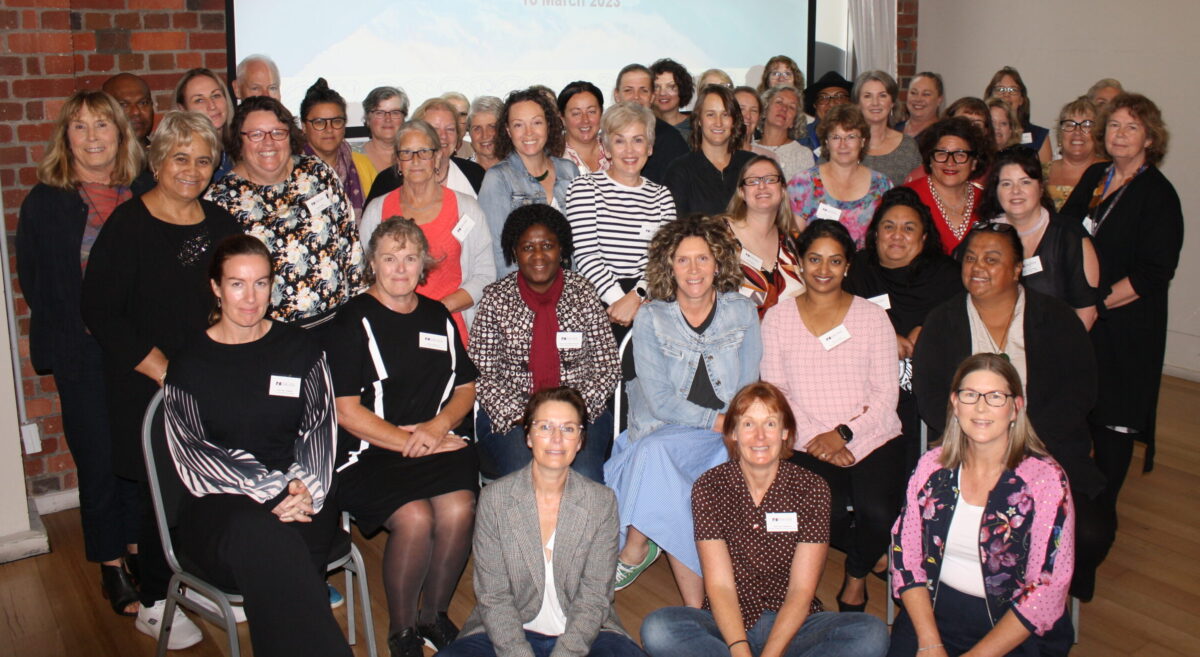Nurses shared their challenges, successes and desire to be heard when they gathered face to face for the first time in two years at NZNO’s college and section (C&S) day in Pōneke/Wellington this month.
About 50 of NZNO’s some 12,000 C&S members attended — many jubilant at the prospect of holding their specialty events and conferences again in 2023 after more than two years of pandemic isolation.
Burnout due to short-staffing – heightened by COVID – was a hot topic, as was the need to better address Māori and Pacific health disparities and bring more diversity into C&S committees. Many spoke of their ongoing struggle for their specialty role to be recognised and voice heard at decision-making tables.
They shared, too, their achievements and hopes for the future, alongside efforts to align their work with NZNO’s strategic plan Maranga Mai!
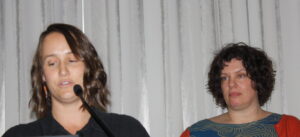
‘We’ve seen a huge increase in the number of resignations of experienced, compassionate and enthusiastic emergency nurses nationally.’
For emergency nurses, the biggest challenge was a “huge” increase in resignations amid increasing workloads, college of emergency nurses NZ (CENNZ) chair Amy Button said.
“We’ve seen a huge increase in the number of resignations of experienced, compassionate and enthusiastic emergency nurses nationally.”
This had led to record staff shortages, significantly compromising patient care, she said. CENNZ had been working on “robust” safer staffing models as well as issuing more provisional improvement notices (PINS) to management over their legal health and safety obligations.
Its membership had grown to 530, of which eight per cent was Māori, and CENNZ now had a Te Rūnanga representative on its committee.
The number of national CENNZ triage courses had increased from eight to 12 per year due to demand with more than 200 nurses graduating in 2022. The income supported ED nurses nationally through grants and awards.
Critical care nurses’ value highlighted by COVID.
COVID revealed how under-prepared New Zealand’s critical care capacity was, but it also highlighted the value of critical care nurses, NZ college of critical care nurses leaders said.
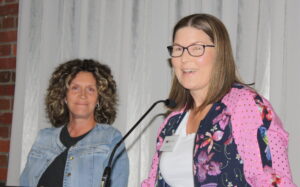
‘We know the answers. We know what needs to happen. We’re here, we want to do it.’
Chair Tania Mitchell was doing six media interviews a day at the height of the pandemic, with little support, she said. But raising issues ultimately resulted in an extra $544 million funding for critical care – which funded another 85 beds, a 30 per cent increase nationally — “so that’s a success”.
However, New Zealand now needed another 450 critical care nurses to staff the ICU beds, Mitchell said.
The cash boost had also funded more nurse educators, and clinical coaches – a new position, — in every ICU.
“That is the value of the work we are doing that is for nurses — that’s about retention, supporting our new nurses and retaining them in critical care,” Mitchell said.
Mitchell also sits on a Te Whatu Ora critical care sector advisory group set up during the pandemic which met weekly to make decisions about critical care in New Zealand.
“As college and section members, as representatives – we’re here in this room. We know the answers. We know what needs to happen. We’re here, we want to do it, we’re driven to do it, so if NZNO could engage with us, listen to us, let’s work together and help us to fix this.”
College of gerontology nurses chair Natalie Seymour shares the ups and downs of aged care during COVID with this rap, filmed with colleagues.
IPC nurses ‘burnt out’
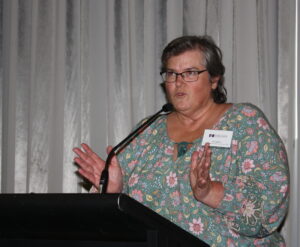
Infection prevention and control (IPC) nurses were dealing with high turnover and “a lot of burnt out staff,” IPC nurses college chair Lisa Gilbert said.
COVID had made an “incredible impact” on the workforce, many of whom worked solo and had to set up managed isolation/quarantine sites and vaccinations stations or support primary health care (PHC) clinics, COVID clinics and aged residential care (ARC).
The 720-member IPCN college was meeting Te Whatu Ora this month to talk about how IPC might fit into their structure, as it had not yet been factored in — “interesting almost a year down the track”, Gilbert said.
It was also launching a nine-month “fundamentals” mentoring programme for new IPC nurses, to try and bridge the gaps in ARC, PHC and hospitals, Gilbert said. “We’ve set up experienced mentors to work with small groups of new practitioners to give them the basics they require to do an IPC role.”
In 2022, 54 nurses completed the programme, which she hoped would be self-funding over the next two years.
‘Our younger cohort of nurses [are] wanting to travel and spread their wings a little bit.’
Neonatal nurse exodus
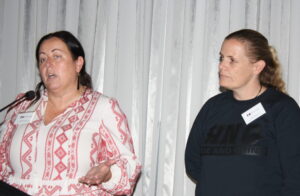
High turnover and recruitment were also the biggest challenges for neonatal nursing, said neonatal nurses college Aotearoa chair Merophy Brown and committee member Michelle Willows.
Experienced staff were leaving due to length of service, burnout or a post-Covid change of priorities, while newer nurses were quite mobile. “Our younger cohort of nurses [are] wanting to travel and spread their wings a little bit”.
In response to the loss of senior role models, the 630-member college planned to deliver specialist training to all 22 special care baby and neonatal intensive care units nationally. The initial plan was to support 20 nurses each year to attend an online neonatal neuro-development programme FINE — “first steps in family and infant neurodevelopment education”.
Pacific nursing ‘plagued’ by workforce challenges
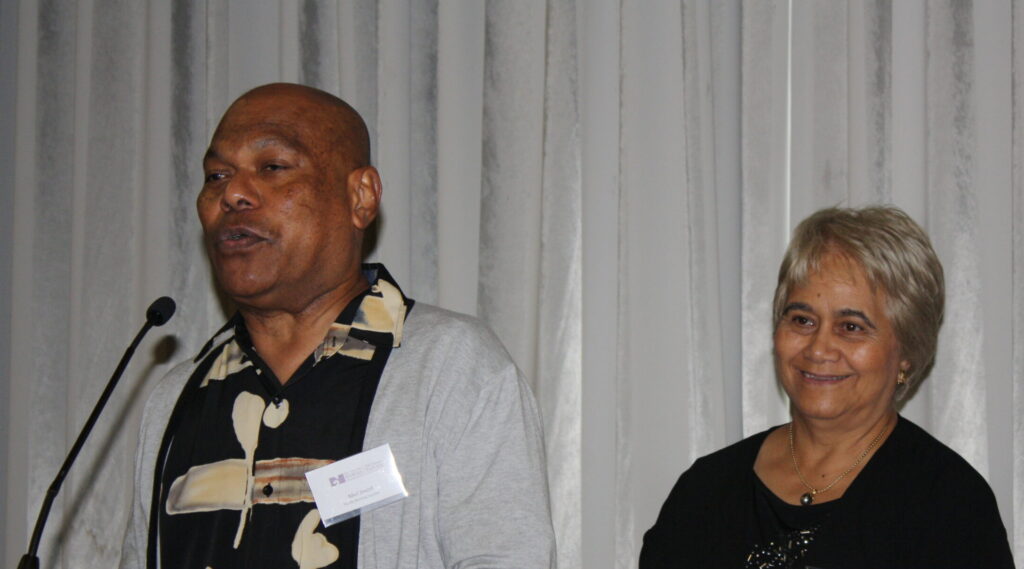
Pacific nursing continued to be “plagued” by workforce issues – recruitment, retention and pipeline — Pacific nursing section (PNS) member Abel Smith said. With fewer than 3000 Pacific nurses in New Zealand against a Pacific population of 400,000, “there is a big mismatch of our total Pacific population and our nursing workforce and the burden of disease for Pacific people”.
PNS was working with the Nursing Council on a registration pathway for Pacific-trained nurses with a bridging course expected to launch in July through Whitireia Polytech. “We want to leave it [Pacific nursing] in a better place for our future nurses than when we came in.”
Perioperative and flight nurses fear being replaced
For perioperative nurses, the biggest challenge was the threat of being replaced by anaesthetic technicians, perioperative nursing college chair Cassandra Raj said.
Raj said it was important to maintain nurses in the surgical space. “Nurses are the trusted, known and regulated workforce within the operating room.”
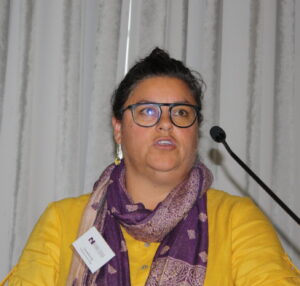
Other challenges were trying to be heard and consulted when operating theatres were being designed or built – to be asked for “an opinion in environments we’re working in”.
Nor were there enough nurses on the ward and post-anaesthesia care units (PACU) to take care of patients after surgery, she said.
Membership had grown to nearly 500, and its 2022 conference was a “profitable success” with nearly 300 attendees.
College of air & surface transport nurses (COASTN) committee members Andy Gibbs and Patrice Rosengrave said it was a “small but mighty” group of 445 nurses.
It was a “constant fight” to be recognised and valued as a specialist group. “We’re expensive and we need training . . . and that is definitely a fight we have on our hands.”
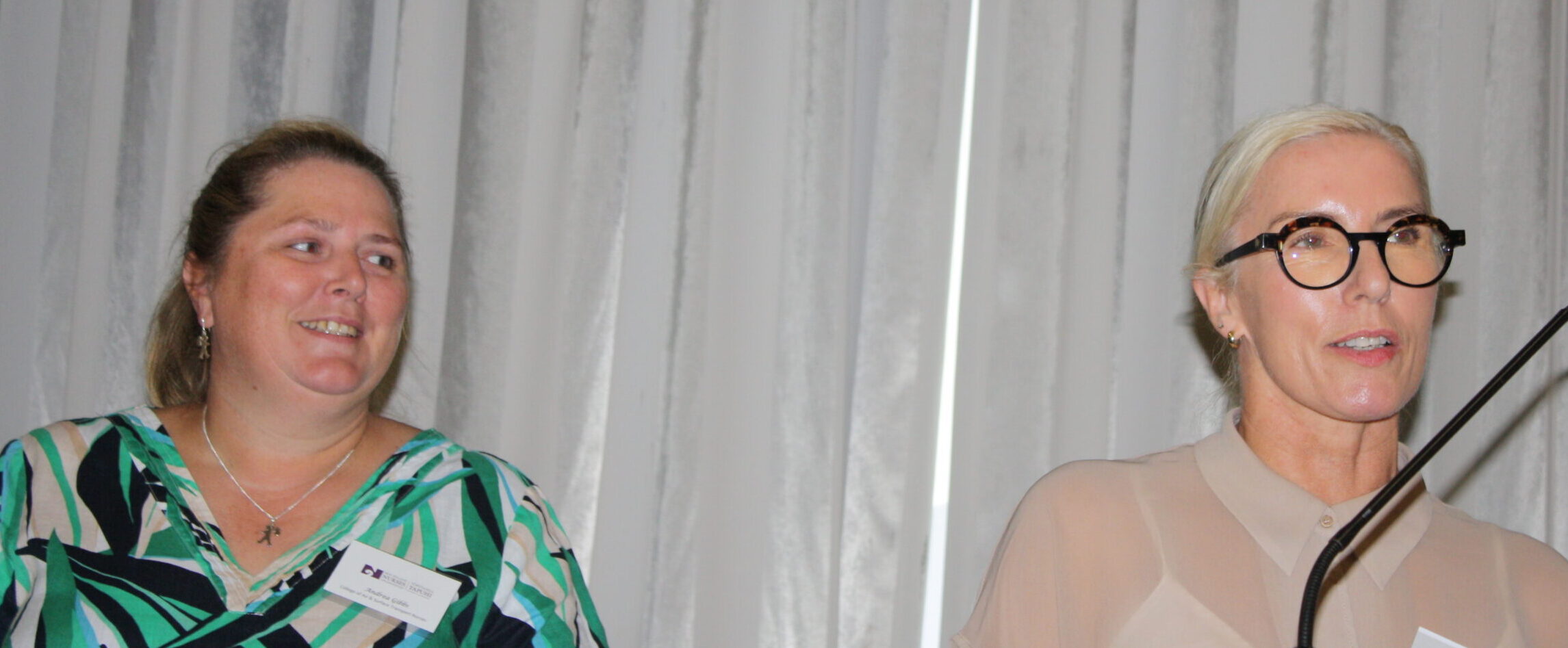
COASTN was also battling to maintain flight nurses on inter-hospital air ambulance transfers, amid a national ambulance service review.
‘We’re working really hard to support those people because without senior nurses our specialty would be really struggling with the ability to support our RNs.’
‘Work to do’ to keep nurse-led services
The women’s health college (WHC) was partnering with the NZ College of Sexual and Reproductive Health to provide long-acting reversible contraceptive (LARC) training for the first time this year, members Callie Reweti and Jackie Gartell said. They hoped PHC nurses especially would take up the chance to “bridge the gaps”.
Its members cared for women who were often marginalised, they said. The college was keen to grow its membership, currently at 350.
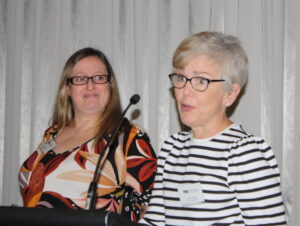
WHC was developing guidelines for nurse colposcopy and hysteroscopy, to support nurses in those roles rather than leave them to the medical workforce.
Nurses in maternity also wanted to work “collaboratively” and supportively with midwives rather than under their direction and delegation, “as we are independent professionals”, Reweti said.
WHC was “really proud” New Zealand had decriminalised abortion last year, but there was still a way to go on developing a policy on late-term abortion, Gartell said. “We’re working on that.”
Gastroenterology college trying to retain senior nurses
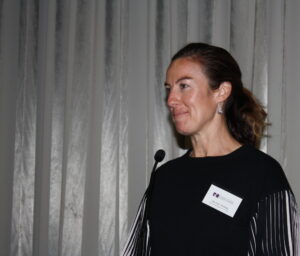
The gastroenterology nurses college had been busy collaborating with nurses across a range of sub-specialties such as inflammatory bowel diseases, nurse endoscopy and nurse hepatology, chair Merrilee Williams said.
Caring for and retaining senior nurses “who often get forgotten” such as nurse practitioners, nurse endoscopists, clinical nurse specialists and other nurse leaders was a priority . . . “because our senior nurses support the rest of our group”, she said.
“We’re working really hard to support those people because without senior nurses our specialty would be really struggling with the ability to support our RNs.”
‘We didn’t just get one medication funded, we got two — and this is a real lifeline for our patient group.’
Gastroenterology nurses also collaborated closely with their medical counterparts, running an annual scientific conference with awards for nurses who made scientific posters, gave presentations or contributed scholarly articles for its Tube publication.
It also encouraged nurses to seek scholarships through its education fund.
Its inflammatory bowel diseases nurses had partnered with Crohn’s NZ and the Society of Gastroenterology, to successfully challenge Pharmac to fund new medication for the treatment of inflammatory bowel disease.
“We didn’t just get one medication funded, we got two – and this is a real lifeline for our patient group and one of those medications the patients can administer at home, so it really does give them a good quality of life.”
The nurse endoscopist group was working towards recognition of its expertise and advanced scope of practice “so we can start finally working towards reducing our bowel cancer burden of which we have one of the highest rates in the world”.
Its hepatology nurses had also been working hard to try and eliminate Hepatitis C from New Zealand, identifying and supporting patients to access new medications and connecting with hard-to-reach communities.
The college was also creating online education for its nurses, as its specialty education was hard to find, Williams said.
Enrolled nurses’ scope review ‘huge’
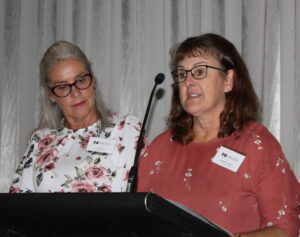
The Nursing Council’s review of the enrolled nursing scope had been “huge” for the enrolled nurse section (ENS), chair Michelle Prattley said. The ENS was now working with the council on a revised scope statement, competency and education standards.
ENs were now also eligible to be authorised vaccinators after becoming provisional vaccinators during COVID, with a short bridging course.
Challenges “like everybody” included retaining staff. Future hopes were for a national skills standardisation for ENs and a bridging programme that recognised knowledge and skills as prior learning.
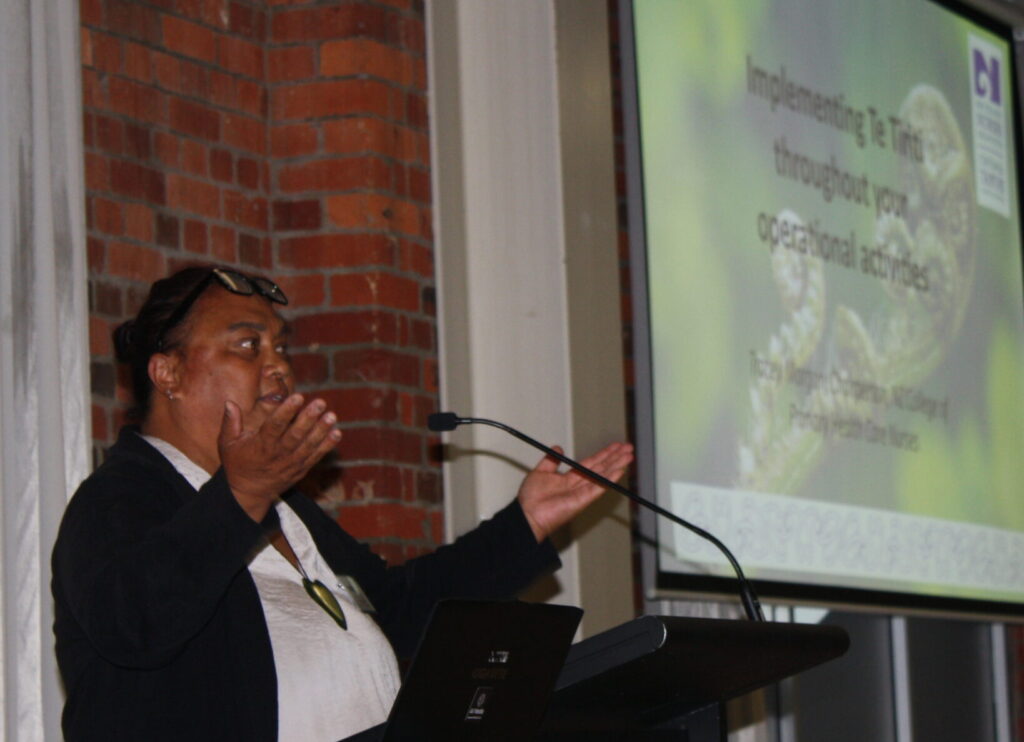
College of primary health care nurses chair Tracey Morgan said the college wanted to “have a political voice” and make primary health nursing more visible, as well as a universal MECA (multi-employer collective agreement) and free smear tests for all.
Morgan also talked about bringing te Tiriti o Waitangi into nursing – singing Six60’s Pepeha to explain what it meant for her being Māori and a nurse.
“We’re all on this boat together,” she said. “It’s up to us where we ride it to . . . we need to navigate, to lead and build.”
Mental health ‘poor sister’
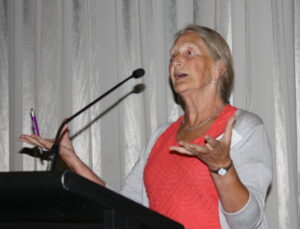
NZNO’s mental health nurses section was working with other mental health nursing groups on a publication about what was needed to take mental health nursing into the future, after an approach by the Ministry of Health.
Committee member Jennie Rae said the college was working hard to promote the voice of NZNO mental health nurses, although Te Ao Māramatanga, the NZ College of Mental Health Nurses, was often the “preferred point of contact for the Ministry of Health so often we feel like the poor sister”.
Rae hoped one day all mental health nurses could be represented by NZNO – which is currently excluded from providing industrial cover to mental health nurses in some regions due to an arrangement with the PSA.
‘If we don’t protect patients’ rights, who’s going to do that for us?’
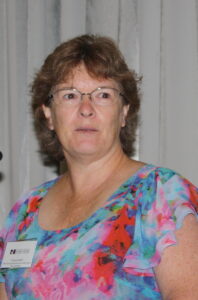
With reform of New Zealand’s mental health legislation underway in favour of a more human rights-based approach, the section was educating members on what this meant for mental health nursing, Rae said.
Rae also suggested C&S members be paid for their time as were NZNO’s industrial delegates. “It would be really great to see equality across the sector for both professional and industrial.”
The nursing leadership section was developing mentoring workshops to members, after a survey showed demand, member Theresa Fisher said.
“One of our biggest challenges is having our voice heard as nurse leaders, especially around pay equity.”
Electronic prescribing ‘huge’ for diabetes nurses
Aotearoa college of diabetes nurses chair Bobbie Milne said its challenges had been “surviving COVID” while managing patients.
But COVID had also brought electronic prescribing, which “made a huge difference to us and our patients”.
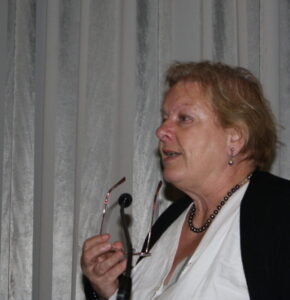
Diabetes nurses were now authorised to prescribe more medicines for type 2 diabetes – but patients can only take two medications if they self-fund one “which doesn’t help the inequities that we face”.
Trying to maintain its committee at full strength and “representing diversity” were also challenges, she said.
Aspirations included the roll-out of a national education programme in partnership with the NZ Society for the Study of Diabetes, and developing a website.
The cancer nurses college aspired to “destroy the inequities” in cancer outcomes, where Māori have 30 per cent lower survival rate than non-Māori. The college had also been working closely with the Government on the 2019-2029 Cancer Action Plan in which nursing featured highly, professional nursing advisor Anne Brinkman said.
The college of child & youth nurses was focusing on building relationships with organisations such as the Office of the Children’s Commissioner and examining its strategic plan against NZNO’s Maranga Mai!, members Jo Clark-Fairclough and Emma Collins said.
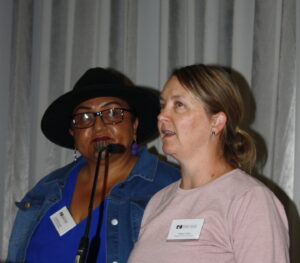
‘Colleges & sections are absolutely critical to that future – you bring a professional gravitas to the conversation that we need.’
The college of respiratory nurses had also been challenged by loss of members – but COVID had also raised their profile, committee member Teresa Chalecki said. “Everybody suddenly realised the importance of breathing.”
College of stomal therapy nursing member Maree Warne said they were “a small but persistent” group of nurses essential to kidney patients and their whānau. The college wanted to be more vocal and was currently formulating national clinical guidelines for the care of kidney stones.
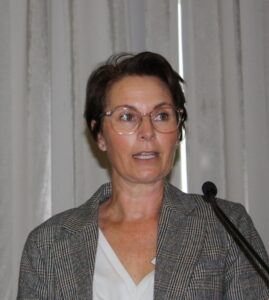
The nursing research section also had high turnover. Members were keen to re-establish contact with Te Whatu Ora research committees and tertiary providers to raise the profile of nursing research, professional nursing advisor Sandra Bayliss said.
“It’s one of the things that’s been really deprioritised in recent times because of everything else going on in the world. But what a fantastic way of highlighting what it actually is that nurses do — which helps with the whole thing of rising up.”
NZNO kaiwhakahaere Kerri Nuku spoke about the importance of nurses advocating for patients. “If we don’t protect patients’ rights, who’s going to do that for us?”
Nuku suggested nurses “ponder our responsibilities, our voice” in an election year.
Nurses also needed to prepare for climate change and its “unpredictable” impact, said Nuku – whose whānau and home was affected by Cyclone Gabrielle recently.
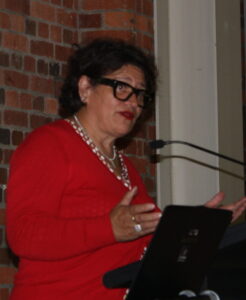
“The impact of climate change is going to be unpredictable and our workforce needs to be prepared for that,” she said.
NZNO chief executive Paul Goulter said he was “appalled” at the lack of respect given to nurses, calling on C&S to “weigh in” with their opinions.
“Colleges & sections are absolutely critical to that future – you bring a professional gravitas to the conversation that we need.”
NZNO’s colleges & sections had a “unique and special place to grapple with the big questions, as well as the narrow issues you face in your specialty”, Goulter said. “We need to bring the weight of our argument to our work – in a way that can’t be ignored.”
However 12,000 C&S members out of 57,000 total NZNO members was “too low”.
Nursing Council staff talked about the council’s new te Tiriti-led approach which was more people-focused and better reflected Aotearoa. It had also signed the pride pledge “acknowledging and respecting . . . people of diverse sexualities and genders”, policy director Nyk Huntington said.
The Council’s principal advisor Māori, Cheryl Goodyer, said the council wanted to put te āo Māori principles and values “front and centre of everything we do”.



